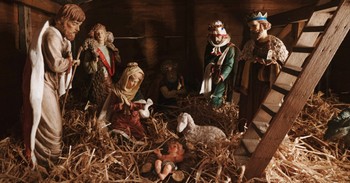
Some things must be memorized to be really useful. If your work required you to multiply numbers such as 6x7 or 8x9, you would save a lot of time by memorizing the multiplication table. The same is true of Bible truths. A good catechism sets out the core truths that Christians believe. It is usually arranged in the form of questions and answers so that it can be easily remembered.
A catechism might ask, "What is true faith?" and answer, "True faith is not only a knowledge and conviction that everything God reveals in his Word is true; it is also a deep-rooted assurance, created in me by the Holy Spirit through the gospel, that, out of sheer grace earned for us by Christ, not only others, but I too, have had my sins forgiven, have been made forever right with God, and have been granted salvation."
If what you believe is important to you, a catechism can be as helpful as a multiplication table and a good deal more comforting.
One of the best known catechisms of all time is the Heidelberg Catechism. It is named for a German city, where it was prepared by theologians of the University of Heidelberg at the request of Elector Frederick III, a friend of the Protestant Reformation. Frederick hoped the new catechism would secure harmony among Protestants in his territories and strengthen the hold of the Reformed faith on his provinces. He wrote the preface of the Catechism himself, which is dated this day, January 19, 1563. The Heidelberg Catechism is used by the Reformed Church. Hundreds of thousands of people have memorized it and lived by its teachings over the years since then.
The Catechism presented 129 questions with their answers, backed up by more than seven hundred Bible references. The authors said they wanted it to be an echo of the Bible. Frederick pointed out that the references had been selected "with great pains" to give the best possible authority for its claims. A nice thing about the Catechism is that it is very personal, using the words "I," "me," and "my" in its answers. For example, listen to question 56: Question: What do you believe concerning "the forgiveness of sins?" Answer: I believe that God, because of Christ's atonement, will never hold against me any of my sins nor my sinful nature which I need to struggle against all my life. Rather, in his grace God grants me the righteousness of Christ to free me forever from judgment."
Other catechisms were written before the Heidelberg Catechism. Zecharias Ursinus, the twenty-eight year old theology professor who drew up its content borrowed theological ideas from one by Jean Calvin and the arrangement from Martin Luther's. Frederick's court preacher, twenty-six year old Caspar Olevianus, was involved in the final composition and editing of the work, which Heidelberg's theologians approved.
Later, someone divided the Heidelberg Catechism into fifty-two parts, one for each week of the year, so that it could be easily studied by the church. Pastors were expected to preach a sermon on the appropriate questions every Sunday afternoon.
Soon after it was written, the Heidelberg Catechism was translated into Dutch. The Dutch heartily endorsed it at four different synods. The Dutch Reformed Church is one of the strongest branches of the Reformed Church.
The influence of the Heidelberg Catechism did not end with the Dutch. On November 5th, 1647, when the Westminister Assembly of Divines presented their Shorter Catechism to the English House of Commons for approval, it was based on the famous Heidelberg text.
Bibliography
- Barth, Karl. The Heidelberg Catechism for Today. Richmond, VA: John Knox, 1964.
- "Heidelberg Catechism," and "Westminister Assembly of Divines." Encyclopedia Americana. Chicago: Encyclopedia Americana, corp., 1956.
- Various internet articles.
Last updated May, 2007.







